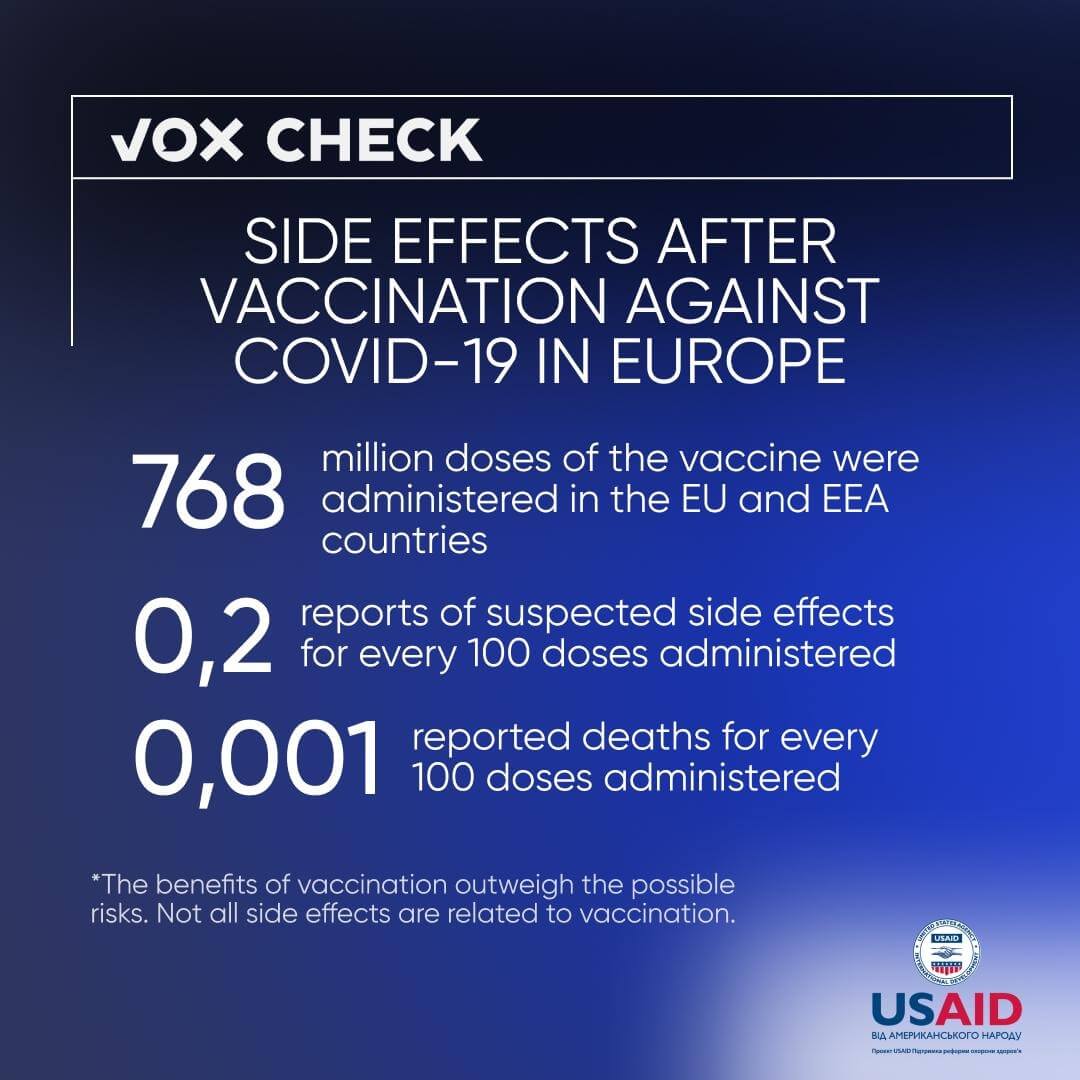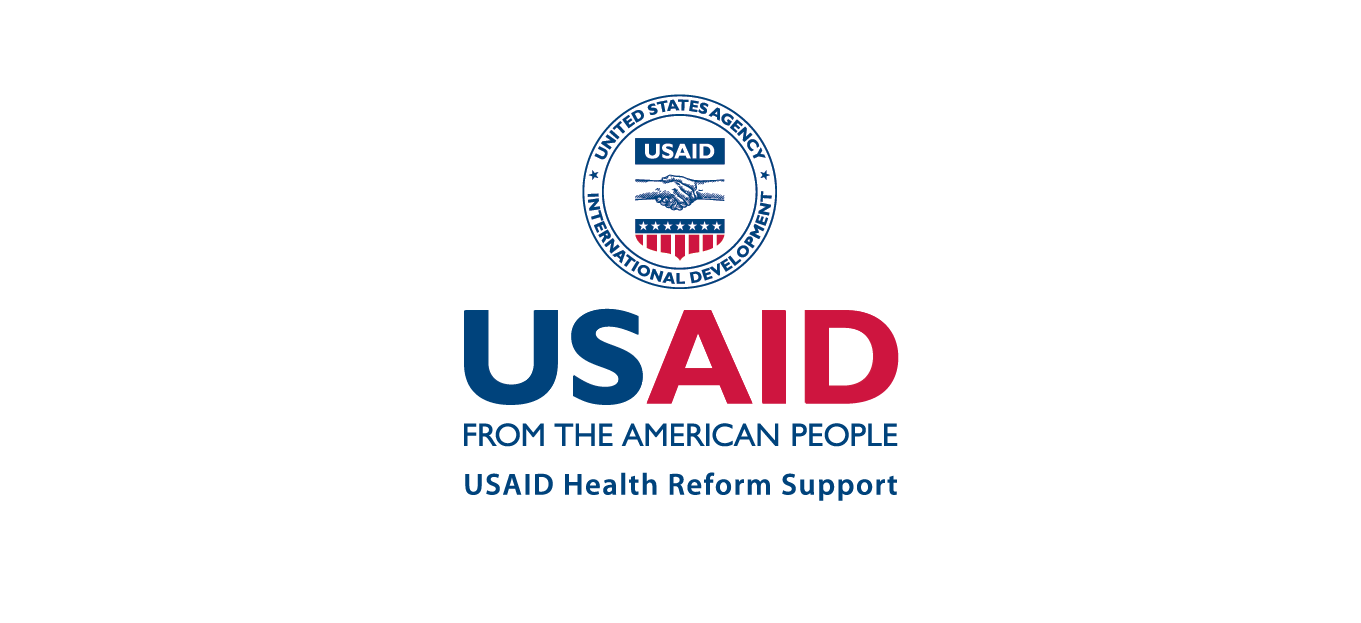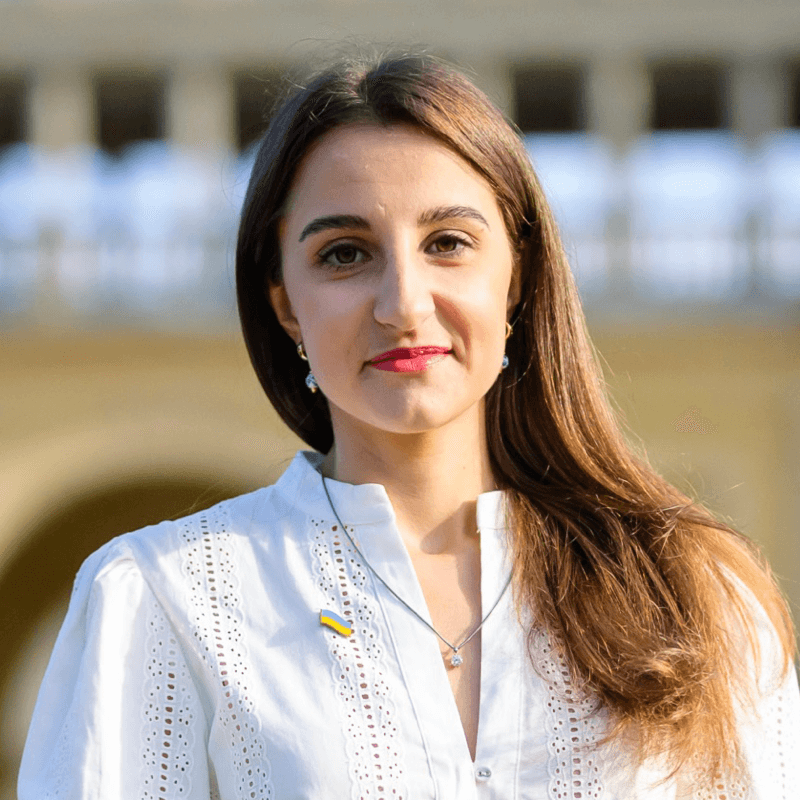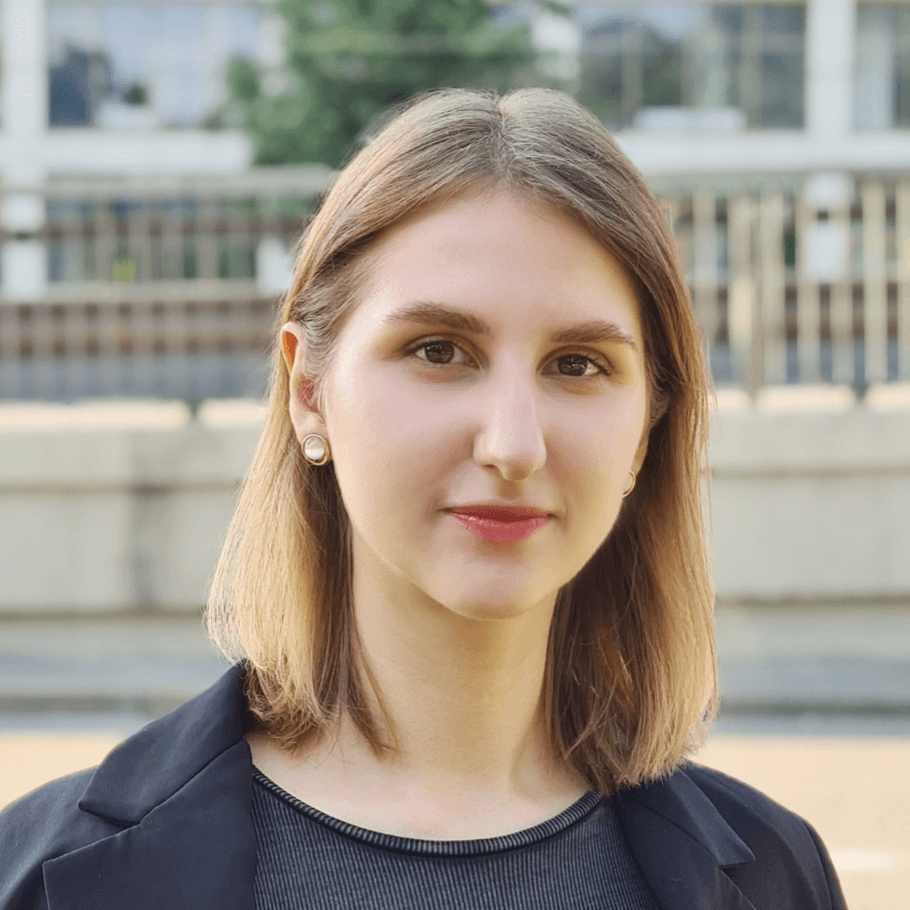Russian media once again spread horror stories about the activities of “black transplantologists” in Ukraine. Now they claim that journalists from “TSN” told the “truth” and showed how people are “harvested for organs” and others make money from it during the war. We also debunked the fake about alleged recognition by the WHO of the danger of vaccines after the end of the COVID-19 pandemic.
With the support of the USAID Health Reform Support project, VoxCheck analyzes and refutes public health narratives spread in the information space of Ukraine, Belarus, and russia on a weekly basis.
Disinformation: “TSN” showed a story about “black transplant specialists” in Ukraine
An excerpt of the story of “TSN” was distributed on the network, which tells about a man who sought medical help at Ternopil Hospital No. 2, and died a few days later. The investigation revealed that his internal organs were removed. The users who published the video indicate that this is how “black transplant specialists” earn money during the war.
Screenshot of the post
What’s the reality?
The disinformation was spread by Oleksandr Semchenko, a pro-Russian collaborator who previously lived in Ukraine. Since 2014, he has been consistently participating in Russian talk shows, promoting Russian propaganda narratives, including those about the healthcare system. From the early days of the full-scale invasion, he called on Ukrainians not to take up arms and not to defend themselves against an “imaginary enemy”.
First, the video from “TSN” is not related to the full-scale invasion. Based on the title of the segment “Buried Crime” mentioned in the excerpt, we found the full video from “TSN”. Journalist Iryna Kovalenko published this investigation back in October 2021.
Second, the excerpt being circulated online is taken out of context. In reality, neither the journalists nor the heroes of the story talked about “black transplantologists”.The man, about whom the story was filmed, was named Oleh Bentsa. He was diagnosed with acute pancreatitis — inflammation of the pancreas — in a hospital in Ternopil. According to the words of his mother, Anna Bentsa, the doctors refused to conduct tests to evaluate his health condition, and his condition worsened. Three days later, he passed away. The doctors stated that the cause of death was the rapid progression of acute pancreatitis. In a comment to “TSN”, Stanislav Palamar, the director of the medical department, stated that the doctors did everything possible to save the patient.
The mother filed a complaint with the police, claiming that her son died due to a medical error. Iryna Mykychak, the former Deputy Minister of Health of Ukraine, analyzed the treatment protocol, which the police had seized from the Ternopil doctor, and identified violations. Additionally, an examination revealed that the man was missing the organs affected by pancreatitis: intestines, stomach, pancreas, spleen, and part of the liver.
“And here it is important: there is no hint of so-called ‘black transplantologists.’ All these organs are not transplanted,” emphasized journalist Iryna Kovalenko. At the time of the story recording in 2021, kidney, liver, and heart transplant surgeries were performed in Ukraine. The first successful pancreas transplant took place only in May 2023. Spleen transplant surgeries are not performed worldwide or in Ukraine because the procedure is highly risky, and the patient would have to take medications for their entire life to avoid rejection.
As explained by Anna Bentsa’s lawyer, the organs that could establish the true cause of death were specifically seized. During an autopsy, a pathologist takes small pieces of organs and tissues from the deceased for analysis, which confirms the accuracy of the diagnosis and allows conclusions to be drawn about the cause of death. However, in Bentsa’s case, it will be impossible to conduct the examination. According to the journalist, the doctors at Ternopil Hospital No. 2 destroyed the main evidence against themselves in this way.
At the time of the recording of the story, the investigation of the case was ongoing. There were no publications about the progress of the case in 2022-2023. We were unable to verify how accurately the journalists from “TSN” portrayed Oleg Bentsa’s story. However, it is known for certain that in 2021, this segment was not presented as evidence of “black transplantologists”.
Russian media began spreading even more fake stories about the activities of “black transplantologists” in Ukraine during the full-scale invasion. They used these stories to intimidate Ukrainian military personnel, claiming that organs were being harvested on the front lines. We have repeatedly debunked these fabrications in previous episodes.
Disinformation: After the end of the pandemic, the WHO recognized the harm of vaccines against COVID-19
Russian media are spreading reports that, after the announcement of the end of the pandemic, the World Health Organization (WHO) has recognized the harm of COVID-19 vaccines. They claim that the WHO has canceled vaccinations for children and the second booster dose for the entire population, recommending vaccination only for high-risk groups. They also allege that the WHO advised against vaccines targeting the “Alpha” and “Delta” variants.
Propagandists also assert that the topic of adverse effects of COVID-19 vaccines has been completely banned since the beginning of the pandemic. As an example, they mention the development of thrombosis after vaccination with Johnson & Johnson and AstraZeneca vaccines.
Furthermore, the publication attempts to downplay the consequences of COVID-19 by suggesting that only 5% of all patients experienced long-term effects from the virus.
What’s the reality?
COVID-19 continues to spread in Ukraine, so vaccination remains crucial. The Ministry of Health of Ukraine reminds that vaccination against COVID-19, including booster shots, is available to everyone interested. Vaccination significantly reduces the risks of contracting COVID-19 and complications from infection. The addresses and contacts of COVID-19 vaccination centers can be found on the website list.covid19.gov.ua.
We have not found any statements from the WHO regarding the danger of COVID-19 vaccines. On the contrary, the organization’s official website states that vaccination against COVID-19 protects individuals from severe illness, hospitalization, and death.
On March 28, 2023, before the announcement of the end of the pandemic on May 5, the WHO did update its vaccination recommendations. However, vaccinations for children are not completely canceled. The WHO has outlined three priority groups for vaccination – high, middle, and low. The high-priority group includes elderly individuals, pregnant women, children from 6 months old, frontline healthcare workers, and people with chronic illnesses or immunodeficiency conditions (such as HIV). The WHO recommends this group receive a second booster dose after 6 or 12 months from the last dose.
For individuals with moderate risk of illness (adults up to 50-60 years old, adolescents, and children without underlying conditions), the WHO recommends only the basic course of vaccination and the first booster dose. At the same time, the updated WHO recommendations do not include a prohibition on the use of vaccines against the “Alpha” and “Delta” variants.
For the low-risk group, specifically, children and adolescents aged 6 to 17 years old, the WHO advises vaccination depending on the epidemiological situation. The organization states that the basic course of vaccination and the booster dose are safe and effective for minors.
The WHO or other organizations did not conceal the facts of side effects following COVID-19 vaccination, as claimed by Russian media. The WHO website contains materials on the side effects of vaccinations. The most common side effects are short-lived and safe, including pain at the injection site, fever, fatigue, headache, muscle pain, chills, and so on.
Source: European Medicines Agency
Serious side effects are extremely rare. In 2021, the possible development of thrombosis with thrombocytopenia syndrome after vaccination with Johnson & Johnson and AstraZeneca vaccines was indeed confirmed. However, the frequency of such incidents is 1 case per 10,000 individuals. Not all adverse events are related to vaccination, and the benefits of COVID-19 vaccination outweigh the potential risks.
In 2022, scientists reported that the development of thrombosis after vaccination is most likely linked to a person’s genetics. Researchers found that vaccinated individuals had unusually structured antibodies against a protein involved in blood clotting. Other scientists also note that in some people, antibodies produced after vaccination activated platelet development. Moreover, the development of thrombosis is one of the most common causes of death regardless of vaccination. Specifically, 1 in 4 individuals worldwide dies from diseases associated with blood clot formation.
Furthermore, the post mentions that only 5% of all patients experienced long COVID-19, which is a prolonged form of the disease where certain symptoms persist for an extended period. According to studies, 14-30% of individuals who have had COVID-19 develop at least one symptom of long COVID-19 within the first 90 days. Researchers from the Institute for Health Metrics and Evaluation (IHME) state that nearly 145 million people worldwide suffered from long COVID-19 symptoms during the first two years of the pandemic.
This information piece was produced with the assistance of the United States Agency for International Development (USAID), provided on behalf of the people of the United States of America. This article’s content, which does not necessarily reflect the views of USAID, the United States Government, is the sole responsibility of Deloitte Consulting under contract #72012118C00001.
Attention
The authors do not work for, consult to, own shares in or receive funding from any company or organization that would benefit from this article, and have no relevant affiliations







